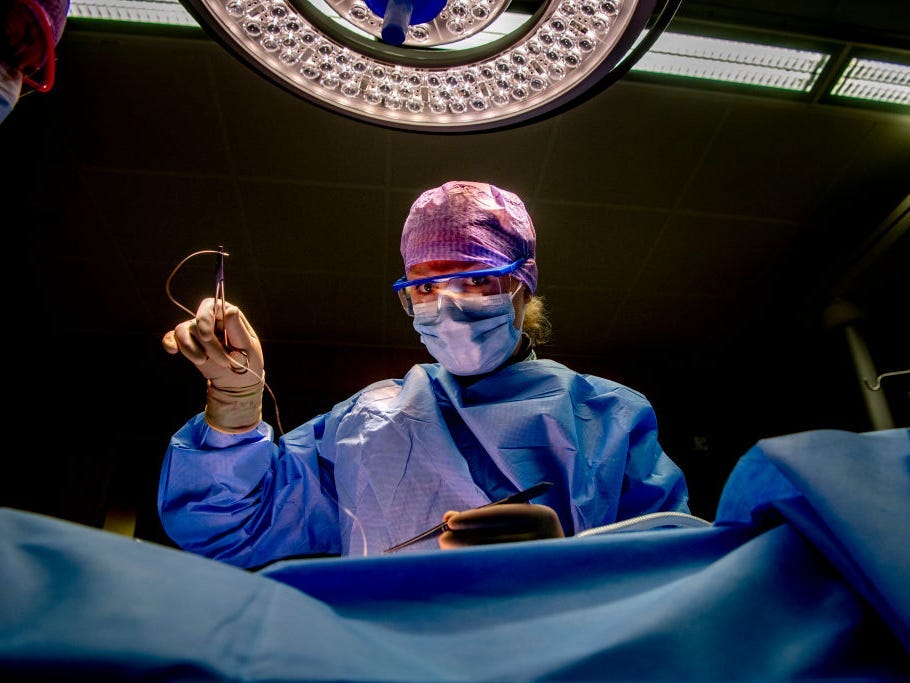
- Brian Flynn jumped at the chance to help his brother’s friend by donating a kidney, reported People.
- About a year later, Flynn decided to do it again by donating a piece of his liver to save a toddler.
- Repeat living donors are incredibly rare.
- Visit Insider’s homepage for more stories.
Giving an organ is a rare act of kindness. It’s even rarer to donate twice. Brian Flynn, 52, felt it was a moral obligation.
According to People, Flynn donated a kidney and a piece of his liver to two separate people within 15 months.
Flynn first started thinking about organ donation in 2016 when he on Facebook and noticed a post by a friend who needed a kidney. While the woman’s ended up being her donor, it left Flynn with a desire to look into the process further.
“I told my wife, ‘I’m feeling like I need to do more. I’m healthy – maybe I really should give someone a kidney,” Flynn told People.
Three years later, right after Flynn turned 50, the opportunity presented itself. His brother’s friend was in need of a kidney and Flynn decided to step up to help. Even after the first donation, Flynn said he wanted to do more.
He got tested to see if he would be a match for a liver donation and was matched a few days later with a four-year-old boy. The procedure was performed without any complications.
"The idea of saving a life is tremendous, but it's also tremendous how it can make you feel," Flynn told People. "And how it can make your life better."
Most organ donations occur after a person has died, making living donations especially rare
What makes donation difficult is finding what doctors call a match, or a donor who has the same blood type, good immunity, and other medical factors as the person in need.
In the US, the Organ Procurement and Transplantation Network (OPTN) maintains a list of people who can receive a donor organ from an anonymous donor based on organ match and level of need. The list ranks people based on their priority.
While it's a challenge to find a match in general, it's even more difficult to find a match who is alive and willing to donate, aside from family and friends.
According to the US Health Resources and Human Services Department, most donations occur after a donor has died . Organs like the heart, stomach, and intestines are needed to live, so the only option is to look for a match who is a deceased donor.
Organs like a kidney, pieces of the lung, and liver can be donated by someone still living.